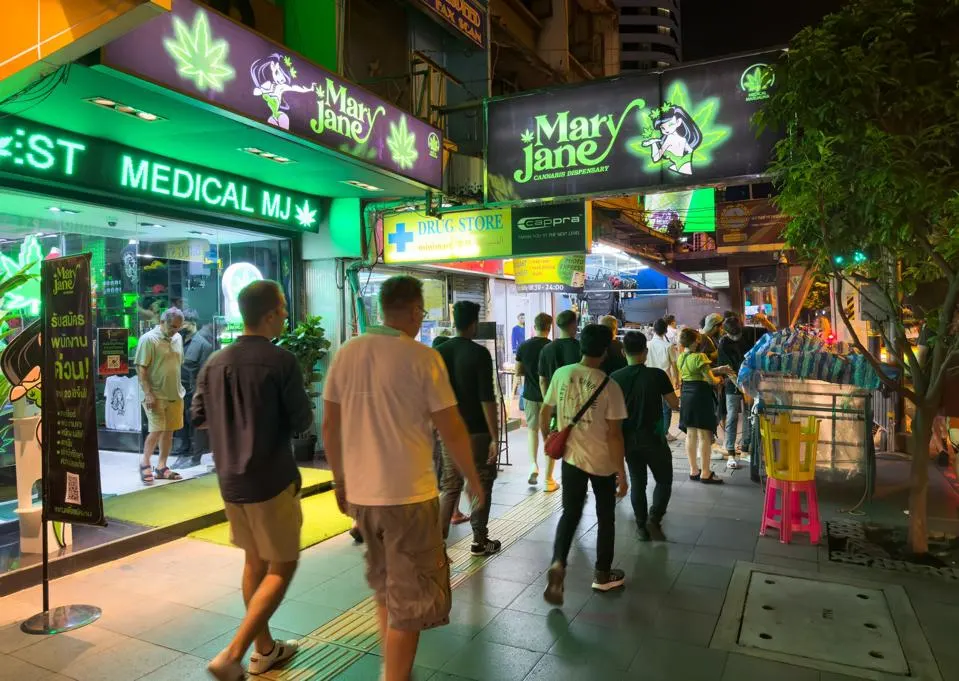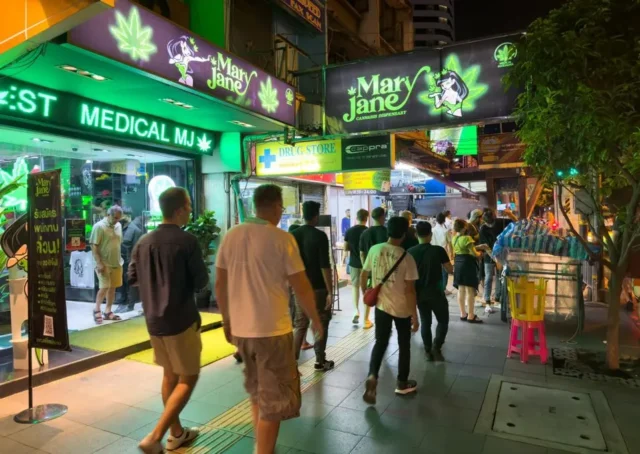Thailand, the first country in Asia to decriminalize cannabis, is now taking steps to ban its recreational use. In a major policy reversal, the new conservative coalition government aims to tighten regulations and limit cannabis to medical and health purposes only. This move comes just 18 months after the country’s groundbreaking legislation that saw the emergence of a thriving cannabis industry. While the government cites concerns about drug abuse, the decision has sparked debates about the impact on businesses and the future of cannabis regulation in Thailand.
Background
Thailand made history in June 2022 when it became the first country in Asia to fully decriminalize cannabis. The move was a significant departure from the region’s strict stance on marijuana possession, consumption, and trafficking, which often resulted in lengthy jail terms or even death sentences. The decriminalization allowed for the cultivation, trade, and use of marijuana and hemp products for medicinal purposes. It also opened up new opportunities for cannabis-themed businesses and drew tourists to the country.
The Shift in Policy
The conservative coalition government, which came to power late last year, has expressed its intention to rectify the cannabis laws and restrict its use to medical purposes. A draft bill released by the health ministry outlines fines and prison sentences of up to one year for offenders. The bill also prohibits advertising and marketing campaigns for cannabis products. Prime Minister Srettha Thavisin has voiced his concerns about drug abuse and stated that the new legislation aims to address the misuse of cannabis.
Impact on Businesses and Advocacy Groups
The cannabis boom in Thailand has had a positive impact on various sectors, including farmers, small business owners, and workers in the industry. However, the government’s decision to ban recreational use has raised concerns among cannabis entrepreneurs. The Future Cannabis Network, an advocacy group in Thailand, expressed disappointment and emphasized the importance of public involvement in shaping cannabis regulations. While some entrepreneurs argue against any regulation that could harm the industry, others acknowledge the need for responsible use and the focus on medical purposes.
Public Opinion and Future Outlook
The proposed ban on recreational cannabis use has generated mixed reactions among the public. Supporters of the legislation argue that it will help address drug-related issues and promote responsible use of cannabis. However, critics argue that the ban is a knee-jerk reaction and may hinder the progress made in the cannabis industry. Despite the government’s decision, it is unlikely that cannabis will be reclassified as narcotics, given the significant strides made in its legalization and the positive impact it has had on various sectors in Thailand.
Conclusion
Thailand’s recent decision to ban recreational cannabis use, just 18 months after decriminalization, marks a significant shift in policy. While concerns about drug abuse are at the forefront of the government’s decision, the move has sparked debates about the impact on businesses and the future of cannabis regulation in Thailand. As the country continues to navigate the complexities of cannabis legislation, it remains to be seen how this decision will shape the industry and the perception of cannabis in Thailand.










